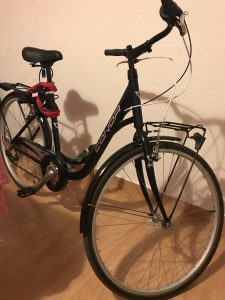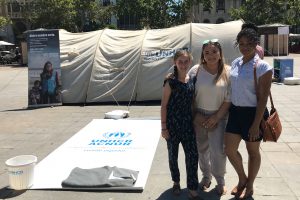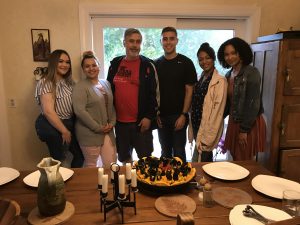 Yesterday I rented a bicycle for the next two weeks in Valencia. In so doing, I fulfilled my vision of living and working in Valencia. The bicycle is the perfect way to travel in this city. I cannot tell you the joy that I feel as I ride down the long bicycle paths that honeycomb the streets of Valencia, running parallel to both pedestrian and automobile traffic.
Yesterday I rented a bicycle for the next two weeks in Valencia. In so doing, I fulfilled my vision of living and working in Valencia. The bicycle is the perfect way to travel in this city. I cannot tell you the joy that I feel as I ride down the long bicycle paths that honeycomb the streets of Valencia, running parallel to both pedestrian and automobile traffic.
When the students saw my newly rented “bici” after class,
One told me “Professor don’t hurt yourself” as I narrowly turned around, just missing the cement wall near the university. :). Another asked if this is like re-living childhood. It really is – and this thought brings to mind a sociological concept that I have been noticing every day in Valencia: Habitus.
Habitus refers to embodied “positions and dispositions” that organize our world view (Bourdieu 1977). Habitus is a conservative force in our lives and in our bodies – bringing us back to the feelings and memories from our earliest societal interactions – typically with our families. How we feel and react when we encounter a new situation is shaped by our habitus.
I have watched the students work hard at their internships and encounter new foods, new languages and new situations. During this all, I noticed frequent references to those conditions of their childhood or early life calling to them. Despite Valencia’s reputation for phenomenal food, one student said to me, “I’m sick of rice – can we just have some plantains?”
This call from our personal past surfaces in unexpected ways while spending time in another culture. In so doing it helps reveal who we are. For me – the bici – brings an embodied sense of freedom in the world and memories of flying through my childhood neighborhood.



